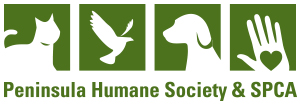Break out the party hats, or at least the big bag of mixed nuts, because tomorrow, January 21, is World Squirrel Appreciation Day. (No, despite my job title, they don’t let me make these things up.) Squirrels are members of the pint-size rodent family Sciuridae which includes tree and ground squirrels, flying squirrels, marmots and prairie dogs. Squirrels are native to the Americas, Eurasia and Africa, and have been introduced into Australia, which is why this is World Squirrel Appreciation Day rather than just a measly U.S. holiday like the 4th of July.
While squirrels are common in San Mateo County and throughout the Bay Area, the squirrel you are most likely to see is not actually a native. Our native species have not exactly been replaced by the Eastern Gray Squirrel (which, despite its name, also produces the Black Squirrels we commonly see, both colors possible from the same litter), but that more aggressive interloper from back East is now the more dominant species. Squirrels have four long front teeth with which to do squirrel-ish things, chewing on everything from trees to rain gutters to keep those teeth literally in line since they grow a remarkable 6 inches per year. That zigzag running pattern is effective at escaping predators, as is the ability to leap 10 times their body length (including that long tail) and rotate ankles 180 degrees (half a circle) to face any direction when quickly clambering up trees.
The swallows returning to Capistrano may signal the arrival of Spring for some, but for those of us at the Peninsula Humane Society & SPCA that role is played by squirrels. Squirrels typically produce two litters every year, and orphaned babies (victims of tree trimmers, wind storms, as well as outdoor cats) are the sure sign that baby wildlife season has begun. At its peak, we will be bottle-feeding close to 200 squirrels at a time, and those are just some of the 1,500 orphaned and injured wild animals we make well and return to native habitat every year. Sound daunting? Want to help? Here’s a few ideas. Restrict tree trimming to late Fall, keep your cats indoor-only (better for them as well), consider donating to and volunteering for your PHS/SPCA!

